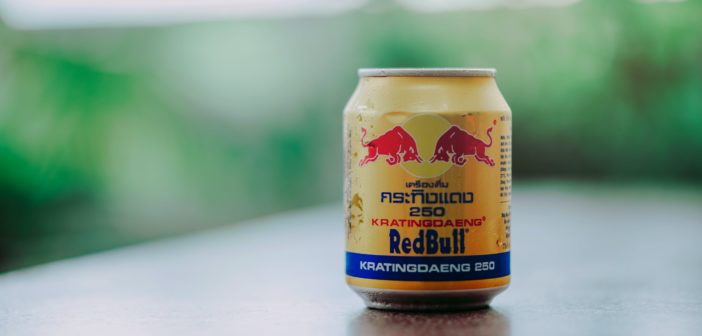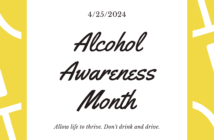By Melissa Bryan, Staff Writer
Some of the most common supplements used by college students to aid them in staying up late are energy drinks. Common energy drinks include: Red Bull, Monster, and Rockstar. Many students at Saint Leo University are aware that energy drinks are not healthy, yet they still drink them. This is partially because they do not know the risks posed by the intake of these drinks.
The Drug Abuse Warning Network (DAWN) defines energy drinks as “flavored beverages containing high amounts of caffeine and typically other additives, such as vitamins, taurine, herbal supplements, creatine, sugars, and guarana, a plant product containing concentrated caffeine.” DAWN goes on to explain that these beverages provide high doses of caffeine that stimulate the central nervous system and cardiovascular system. The total amount of caffeine in a can or bottle of an energy drink varies from about 80 to more than 500 milligrams (mg), compared with about 100 mg in a 5-ounce cup of coffee or 50 mg in a 12-ounce cola.”
The caffeine content in energy drinks is the main reason energy drinks are considered dangerous. Many college students may be unaware of these facts, which could relate to the recent increases in the amount of people visiting emergency rooms as a result of consuming energy drinks.
“The number of emergency department (ED) visits involving energy drinks doubled from 10,068 visits in 2007 to 20,783 visits in 2011,” according to the DAWN report.
Furthermore, it is now a common practice for some people to mix energy drinks with other substances such as alcohol and other drugs. The DAWN report stated that alcohol accounted for 58 percent of energy drink hospitalizations and drugs accounted for 42 percent.
“Research has established that, among college students, there are associations between energy drink consumption and problematic behaviors such as marijuana use, sexual risk taking, fighting, smoking, drinking, and prescription drug misuse,” according to the DAWN report.
For these reasons, college students need to be more informed about the risks of mixing energy drinks with alcohol. Some of the ingredients in energy drinks help to release alcohol more quickly in the body, thus speeding up the release of energy.
“Mixing energy drinks with alcohol can be very bad for women with lower body fat content,” said Teresa Dadez, the Director of the Health and Wellness Center of Saint Leo University. “This is because it does not allow for them to absorb the alcohol, and it affects the body faster. Thus, body fat content may affect how much the energy drinks and the alcohol affect one’s body. It may also result in some people becoming cardiac crippled preventing them from doing anything as a result of too much energy drinks or mixing energy drinks with drugs.”
Although it is sometimes necessary for college students to stay up late or “pull all- nighters” to keep abreast with studies, lack of sleep coupled with the consumption of energy drinks can lead to health issues.
“Many students tend to get sick easily when drinking energy drinks,” said Dadez. “This is because students use energy drinks as a substitute for getting sleep and that eventually erodes their ability to fight off infections.”
Therefore, people are unable to recuperate from the damage done to their bodies without sleep. Based on that information, students should try as much as possible not to become so reliant on energy drinks that they substitute sleep with the drinks.
“Sleep is a good medicine because it allows your body to heal itself,” said Dadez. “If you get dependent on power drinks, your body will not let you fix yourself because you lack sleep.”
Moreover, energy drinks are not bad if people know their limits on how much they should consume.
“An occasional cup of coffee or energy drink is ok,” said Dadez.
It gets bad when people drink too much and go sleepless until they eventually burn out. Some symptoms of drinking too many energy drinks include a faster heart rate, a “jumpy” feeling, and anxiety. The high caffeine content of energy drinks can also become addictive to some people. This addiction can then cause people to become overly emotional and ruin their relationships and personal life. In the end, it is wise for people, and college students especially, to not substitute energy drinks for sleep or as a way to have fun.





